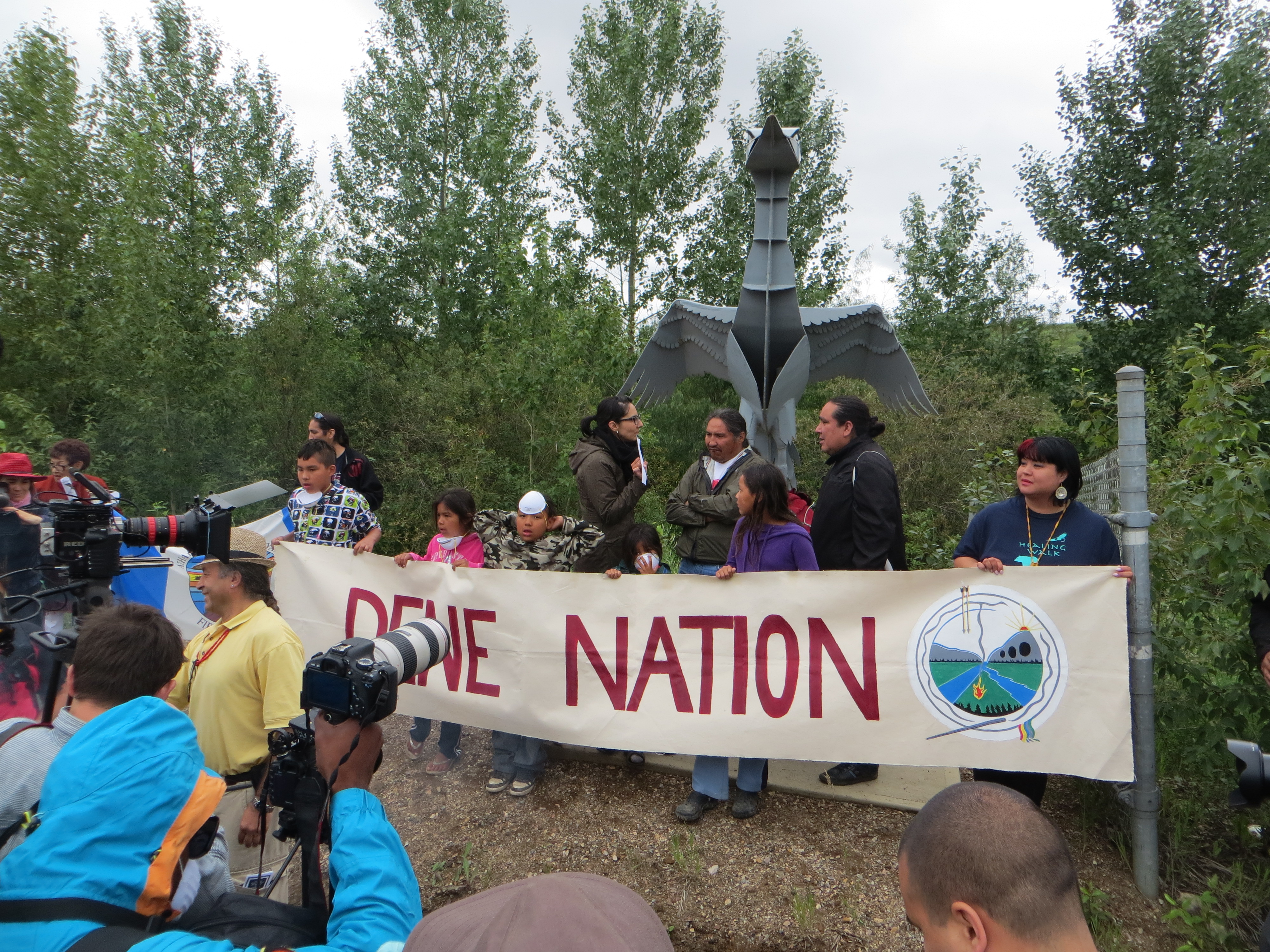Browse "Organizations & Movements"
-
Article
Corporatism
Corporatism was originally a 19th-century doctrine which arose in reaction to the competition and class conflict of capitalist society.
"https://development.thecanadianencyclopedia.ca/images/tce_placeholder.jpg?v=e9dca980c9bdb3aa11e832e7ea94f5d9" // resources/views/front/categories/view.blade.php
https://development.thecanadianencyclopedia.ca/images/tce_placeholder.jpg?v=e9dca980c9bdb3aa11e832e7ea94f5d9
-
Article
Council of Canadians
The Council of Canadians is a national, non-partisan, non-profit citizens' organization dedicated to advancing global social justice and preserving and promoting Canadian sovereignty, political independence and democratic autonomy.
"https://d2ttikhf7xbzbs.cloudfront.net/media/media/346651f7-0648-43dc-b40f-649d2e4a6e84.jpg" // resources/views/front/categories/view.blade.php
https://d2ttikhf7xbzbs.cloudfront.net/media/media/346651f7-0648-43dc-b40f-649d2e4a6e84.jpg
-
Article
Council on the Status of Women
The Conseil du statut de la femme (CSF), or Council on the Status of Women, is a government consultative and review body that has sought to promote and defend the rights and interests of women in Québec since 1973. It reports to Québec’s Minister of Culture, Communications and the Status of Women.
"https://development.thecanadianencyclopedia.ca/images/tce_placeholder.jpg?v=e9dca980c9bdb3aa11e832e7ea94f5d9" // resources/views/front/categories/view.blade.php
https://development.thecanadianencyclopedia.ca/images/tce_placeholder.jpg?v=e9dca980c9bdb3aa11e832e7ea94f5d9
-
Article
Country Life Movement
This movement of loose alliances flourished in the 1900-20 period, a response to the drift to cities and to the perceived loss of rural values. It was fed by the exuberance of the settlement of the Prairie West and by the importance that the Great War lent to farmers.
"https://development.thecanadianencyclopedia.ca/images/tce_placeholder.jpg?v=e9dca980c9bdb3aa11e832e7ea94f5d9" // resources/views/front/categories/view.blade.php
https://development.thecanadianencyclopedia.ca/images/tce_placeholder.jpg?v=e9dca980c9bdb3aa11e832e7ea94f5d9
-
Article
CUPW Postal Strikes
The Canadian Union of Postal Workers (CUPW) is a labour union that represents over 55,000 members across Canada (2024). Members of the CUPW include Canada Post employees as well as couriers, vehicle mechanics, and other workers in the private sector. (See also Postal System.) Since 1965 the CUPW (previously Canadian Postal Employees Association) has represented members in numerous strikes, walkouts and lockouts over several complex labour issues. (See also Strikes and Lockouts.)
"https://d2ttikhf7xbzbs.cloudfront.net/TCE_placeholder.png" // resources/views/front/categories/view.blade.php
https://d2ttikhf7xbzbs.cloudfront.net/TCE_placeholder.png
-
Article
CUSO International
CUSO International (formerly Canadian University Services Overseas), is a nongovernment international development organization best known for placing skilled Canadians in 2-year postings to provide technical assistance in emerging nations.
"https://development.thecanadianencyclopedia.ca/images/tce_placeholder.jpg?v=e9dca980c9bdb3aa11e832e7ea94f5d9" // resources/views/front/categories/view.blade.php
https://development.thecanadianencyclopedia.ca/images/tce_placeholder.jpg?v=e9dca980c9bdb3aa11e832e7ea94f5d9
-
Article
Dene Nation (organization)
Established in 1969–70 as the Indian Brotherhood of the Northwest Territories, the Dene Nation (renamed in 1978) is the political organization that represents the Dene, or northern Athabaskan-speaking peoples and their descendants, of Denendeh, which includes the Mackenzie River Valley and the Barren Grounds in the Northwest Territories, in the settlement of outstanding land and governance issues with the Government of Canada.
"https://d2ttikhf7xbzbs.cloudfront.net/media/media/bd07ff31-bf6a-42a5-9636-8159f6b0c9ab.jpg" // resources/views/front/categories/view.blade.php
https://d2ttikhf7xbzbs.cloudfront.net/media/media/bd07ff31-bf6a-42a5-9636-8159f6b0c9ab.jpg
-
Article
Disability Rights Movement in Canada
The Canadian disability rights movement arose in the latter half of the 20th century. It includes multiple social movements that take a similar but distinct approach advocating civil rights for almost four million people with physical, sensory and cognitive impairments — nearly 14 per cent of the Canadian population.
"https://development.thecanadianencyclopedia.ca/images/tce_placeholder.jpg?v=e9dca980c9bdb3aa11e832e7ea94f5d9" // resources/views/front/categories/view.blade.php
https://development.thecanadianencyclopedia.ca/images/tce_placeholder.jpg?v=e9dca980c9bdb3aa11e832e7ea94f5d9
-
Article
Dorothea Palmer
Dorothea Ferguson (née Palmer), birth control advocate, social worker (born 1908 in England; died 5 November 1992 in Ottawa, ON). Dorothea Palmer was arrested in 1936 for advertising birth control to women in a working-class neighbourhood in Ottawa. She was cleared of charges after a lengthy trial proved her work had been for the public good. Her acquittal was a major victory for the birth control movement in Canada.
"https://d2ttikhf7xbzbs.cloudfront.net/media/DorotheaPalmer/Dorothea Palmer.JPG" // resources/views/front/categories/view.blade.php
https://d2ttikhf7xbzbs.cloudfront.net/media/DorotheaPalmer/Dorothea Palmer.JPG -
Article
Early Women’s Movements in Canada: 1867–1960
Women’s movements (or, feminist movements) of the 19th and early-20th century — often referred to as first-wave feminism — included campaigns in support of temperance, women’s suffrage, pacifism, as well as labour and health rights.
"https://d2ttikhf7xbzbs.cloudfront.net/media/media/569d6d96-ffeb-485f-aa88-98b968b29e2a.jpg" // resources/views/front/categories/view.blade.php
https://d2ttikhf7xbzbs.cloudfront.net/media/media/569d6d96-ffeb-485f-aa88-98b968b29e2a.jpg
-
Article
Elizabeth Fry Society
The Elizabeth Fry Society is a not-for-profit social service agency that provides support for women and girls involved in the Canadian justice system. The Society provides a range of services to women who are criminalized and to women who are at risk of being criminalized. It works to reduce the impact of criminalization, to provide equal opportunities for women in the justice system and to empower marginalized women.
"https://d2ttikhf7xbzbs.cloudfront.net/media/Mrs._Fry_reading_to_the_prisoners_in_Newgate_John_Johnson.jpg" // resources/views/front/categories/view.blade.php
https://d2ttikhf7xbzbs.cloudfront.net/media/Mrs._Fry_reading_to_the_prisoners_in_Newgate_John_Johnson.jpg
-
Article
English Canada Rural Society
In Canada, rural society has been shaped by geographic and cultural diversity and by population mobility.
"https://development.thecanadianencyclopedia.ca/images/tce_placeholder.jpg?v=e9dca980c9bdb3aa11e832e7ea94f5d9" // resources/views/front/categories/view.blade.php
https://development.thecanadianencyclopedia.ca/images/tce_placeholder.jpg?v=e9dca980c9bdb3aa11e832e7ea94f5d9
-
Article
Federated Women's Institutes of Canada
The motto "For Home and Country" reflects FWIC aims: to promote an appreciation of rural living, to develop informed citizens through the study of national and international issues (particularly those affecting women and children) and to initiate national programs to achieve common goals.
"https://development.thecanadianencyclopedia.ca/images/tce_placeholder.jpg?v=e9dca980c9bdb3aa11e832e7ea94f5d9" // resources/views/front/categories/view.blade.php
https://development.thecanadianencyclopedia.ca/images/tce_placeholder.jpg?v=e9dca980c9bdb3aa11e832e7ea94f5d9
-
Article
Fédération des communautés francophones et acadienne du Canada
Founded in 1975, the Fédération des francophones hors Québec became the Fédération des communautés francophones et acadienne du Canada in June 1991. It acts as the voice of francophone community organisations outside Quebec.
"https://development.thecanadianencyclopedia.ca/images/tce_placeholder.jpg?v=e9dca980c9bdb3aa11e832e7ea94f5d9" // resources/views/front/categories/view.blade.php
https://development.thecanadianencyclopedia.ca/images/tce_placeholder.jpg?v=e9dca980c9bdb3aa11e832e7ea94f5d9
-
Article
Fédération des femmes du Québec
Founded in 1966, the Fédération des femmes du Québec (FFQ) (Québec Federation of Women) brings together women who are individual activists or members of an activist association. This feminist lobby group is active in the political arena in calling for equality between the sexes and defending women’s rights. The FFQ is the driving force behind large-scale feminist rallies such as the Bread and Roses March (1995) and the World March of Women (2000).
"https://d2ttikhf7xbzbs.cloudfront.net/media/media/f7142c44-69f0-4102-9aa6-42ab868a0fd2.jpg" // resources/views/front/categories/view.blade.php
https://d2ttikhf7xbzbs.cloudfront.net/media/media/f7142c44-69f0-4102-9aa6-42ab868a0fd2.jpg

